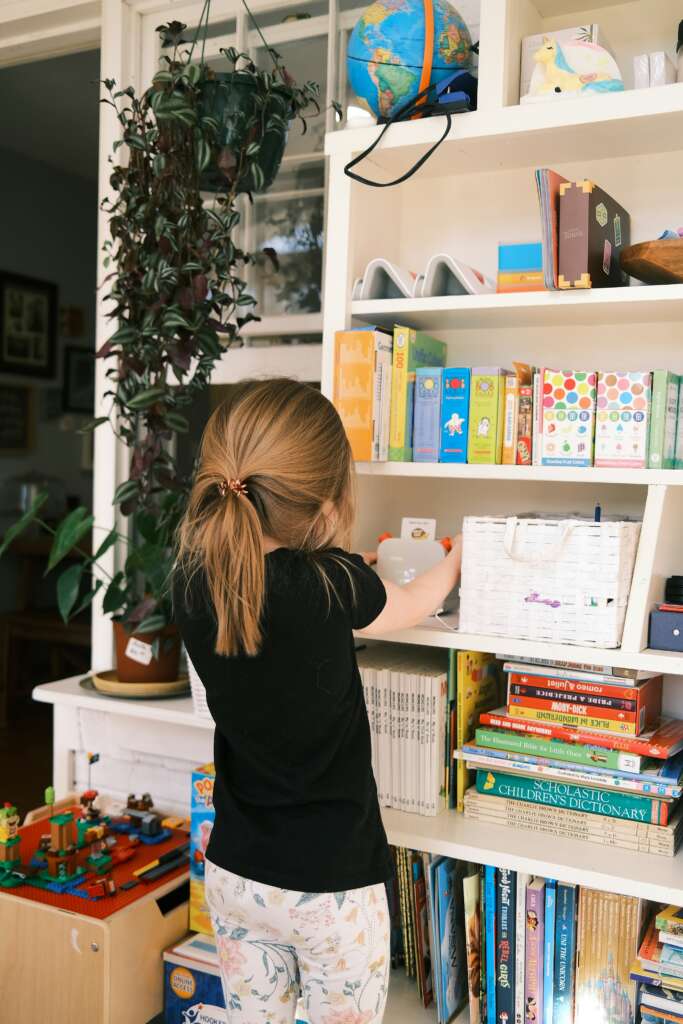Fun, flexible and fabulous for curious young minds (and tired mum brains)
Home ed is a beautiful blend of freedom, frustration, and finding your groove. Some days it feels like an enchanted learning utopia. Other days… let’s just say cereal counts as a science experiment.
When inspiration runs low, this list will lift you. These aren’t just Pinterest-perfect ideas – they’re genuinely enriching, endlessly adaptable and thoroughly road-tested by real-life mums.
1. Project-Based Learning: Let Curiosity Take the Wheel
This is home ed gold. Pick a topic your child is obsessed with – ancient Egypt, volcanoes, ballet, Minecraft architecture -and build a whole project around it.
They research, write, create, present. You sneak in literacy, science, geography, art, even ICT. All without anyone asking “what’s the point of this?”
📚 Try this:
-
Create a lapbook or digital slideshow
-
Build a model or diorama
-
Record a video presentation (yes, TikTok counts)
-
End with a little “museum” display at home
Bonus: It makes for brilliant long-term learning, and kids retain more when they’re obsessed.
2. Nature Walks with Purpose: Because the Outdoors Is the Best Classroom
Yes, fresh air is fabulous. But we’re taking it one step further: every nature walk can be packed with learning.
Hand them a clipboard and they’re suddenly a field biologist. Add some leaf rubbings, a tally chart of birds, or cloud spotting, and boom – you’ve got a whole science and geography lesson with zero whinging.
🌱 Try this:
-
Keep a nature journal with sketches and observations
-
Map your walk and practise compass directions
-
Turn it into a scavenger hunt
-
Track seasonal changes or wildlife patterns
And honestly, it’s good for you too.
3. Real-Life Maths: Sneaky, Satisfying, and Surprisingly Fun
Maths doesn’t have to come in a workbook. You’re surrounded by it.
🍪 Fractions? Bake a cake.
🛒 Percentages? Hit the sales rack and calculate discounts.
💸 Money sense? Give them a weekly budget to plan snacks or a family dinner.
🔢 Try this:
-
Create a pop-up shop at home (use Monopoly money!)
-
Compare prices per 100g at the supermarket
-
Plan and cost out a party or pretend holiday
-
Design a room using area and perimeter
Maths they’ll actually use – no calculator tantrums required.
4. Storytelling & Creative Writing: Fuel Their Inner Author
Creative writing is more than composition. It’s expression, empathy, imagination – and when you remove the pressure of “getting it right,” it’s pure magic.
✍️ Try this:
-
Write alternate endings to favourite stories
-
Make comic strips or graphic novels
-
Dictate stories aloud while you type
-
Start a “family magazine” or blog
Pair with audiobooks, poetry tea time, or dramatic readings for extra flair. Writing becomes performance. And suddenly, they’re begging to keep going.
5. DIY Science Experiments: Messy, Marvellous, Memorable
There’s nothing like kitchen chemistry to make a child’s eyes light up – and yes, it counts as science.
🧪 Try this:
-
Make a volcano with bicarb and vinegar
-
Grow crystals with salt or sugar
-
Test the best biscuit for dunking (data collection = science, right?)
-
Create a DIY water cycle in a sandwich bag
Top tip: Keep a “science journal” to draw predictions and record results. Bonus points for lab coats and goggles from the dressing-up box.
6. Gameschooling: Because Board Games Aren’t Just for Rainy Days
Games are sneaky educators. They teach logic, strategy, literacy, numeracy, cooperation and emotional regulation – all while you sit in your pyjamas pretending to be a hotel mogul.
🎲 Try this:
-
Monopoly or Payday for money skills
-
Scrabble for spelling and vocab
-
Catan, Ticket to Ride or Timeline for geography and critical thinking
-
DIY games with flashcards, dice, or roleplay
And if your child’s resistant to writing? Get them to design their own game. Name it. Build it. Test it. Learning = levelled up.
7. Audiobooks & Podcasts: Learning for Tired Days (aka Most Days)
Not every day has to be hands-on. Sometimes you need a break, and that’s where audio learning steps in.
🎧 Try this:
-
Listen to a chapter of The Explorer by Katherine Rundell, then draw the rainforest
-
Pair history podcasts with timeline activities
-
Start the morning with a short audio meditation
-
Make car journeys educational (and quiet, hopefully)
Perfect for neurodivergent kids, reluctant readers, and multitasking mums.
8. World Culture Days: Because the World Is the Classroom
Pick a country, dive in. Learn about the food, music, geography, language, art and customs. It’s social studies, history, geography and RE all rolled into one delicious day.
🌍 Try this:
-
Cook a national dish
-
Listen to traditional music or folk tales
-
Learn greetings or the alphabet in a new language
-
Recreate famous landmarks in LEGO
End with a mini passport stamp and you’ve got a year-long global tour at your fingertips.
9. Life Skills as Curriculum: Learning for Real Life
One of the biggest home ed wins? You get to teach what actually matters.
🛠️ Try this:
-
Budgeting and saving money
-
Laundry, cleaning, cooking, gardening
-
Basic first aid and safety
-
Time management and goal setting
Create a “Life Skills Checklist” and let them tick off achievements. Confidence soars when kids feel competent.
10. Free Learning Platforms: A Little Screen Time, Well Spent
Not all screen time is created equal. Some platforms are genuinely brilliant — interactive, engaging, and surprisingly educational.
💻 Try these:
-
Khan Academy
-
BBC Bitesize
-
Duolingo
-
Mystery Science
-
Scratch (for coding)
-
National Geographic Kids
Set a timer, set a goal, and let tech work in your favour for once.
The Darling Mellow Takeaway
Home ed isn’t about rigid schedules or forcing learning. It’s about lighting fires – curiosity, confidence, connection.
Mix and match these ideas. Adapt them to your child’s age, needs and passions. Take breaks. Celebrate wins. Laugh a lot. And remember: this is your child’s education – and you’re already doing an amazing job.
Have a favourite home ed idea that’s worked wonders in your home? Share it in the comments – let’s build a brilliant resource for every mum who’s winging it (beautifully).


